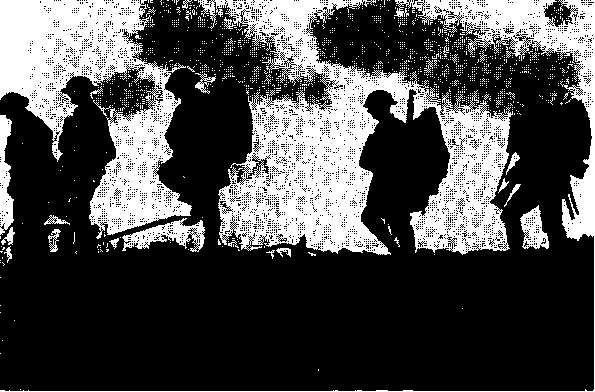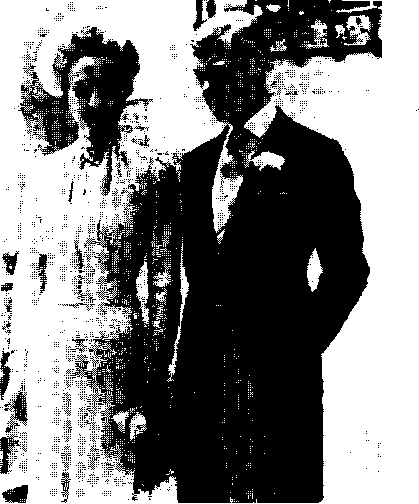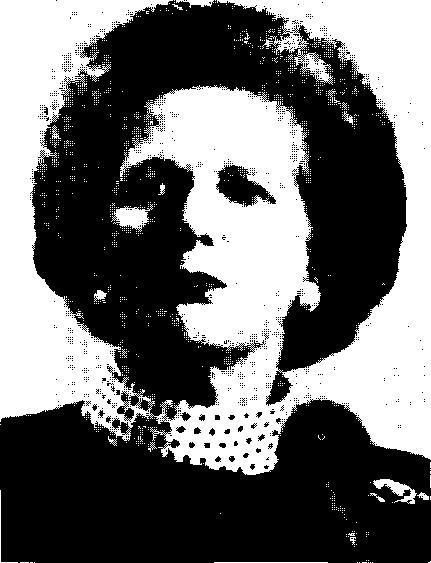
- •1.1Flags and National Symbols
- •1.1.3 London
- •1.3 History
- •1.3.1 Pre-Roman England
- •1.3.2 Roman Britain
- •1.3.3 The Anglo-Saxons, Celts, Vikings and the Dark Ages
- •1.3.4 The Norman Invasion
- •1.3.5 Norman and Other English Castles
- •1.3.6 The Tudors
- •1.3.7 Civil War and Oliver Cromwell
- •1.3.9 The British Empire
- •1.3.10 World War 1 and the /inter-wai/ years
- •1.4 Language
- •1.5.1 System of Government
- •1.5.2 System of Education
- •Infant School or Primary School
- •1.5.3 Law
- •1.5.4 Religion
- •1.6 Mass media
- •2.1 Flag and National Symbols
- •2.2.1 Physical Geography
- •2.2.2 Human Geography and Demographics
- •2.2.3 Washington dc
- •2.2.4 New York
- •2.3 History
- •2.3.1 Native Americans
- •2.3.2 Immigration and the creation of the usa
- •200 Mies
- •2.3.3 Racial inequality and the Civil War
- •2.3.4 Growth and expansion
- •2.3.5 The rise of modern America after ww1
- •2.4 Language
- •2.5.1 System of Government
- •2.5.2 System of Education
- •I.Fa gui
- •2.5.3 Law
- •2.5.4 Religion
- •2.6 Mass media
1.3.10 World War 1 and the /inter-wai/ years
World War I, also known as the First World War, the Great War, the War of the Nations, and the "War to End All Wars", was a world conflict occurring from 1914 to 1918. No previous conflict had mobilized so many soldiers or involved so many in the field of battle. Never before had casualties been so high. Chemical weapons
were used for the first time, the first mass bombardment of civilians from the sky was executed, and some of the century's first large-scale civilian massacres took place. Both the UK and the British Empire were a major force on the, eventually, winning side, while Germany led the opposing force.
WW1 proved to be the catalyst for the Russian Revolution, which would inspire later revolutions in countries as diverse as China and Cuba, and would lay the basis for the Cold War standoff between the Soviet Union and the United States. The defeat of Germany in the war and failure to resolve the unsettled issues that had caused the Great War would lay the basis for the rise of Nazism, and thus the outbreak of World War II in 1939. It also laid the basis for a new form of warfare that relied heavily on technology, and would involve non-combatants in war as never before.

The war had a shattering effect on Britain. About 750,000 members of the British armed forces died. German submarines sank about 7 million tons of British shipping. The war also created severe economic problems for Britain and shook its position as a world power.
British troops at Ypres, 1918 left
By 1920, nearly 2 million workers were unemployed. The coal industry suffered badly as people began to use oil for fuel. Trade unions tried to win gains for their members in many industries. But employers refused concessions, and strikes followed.
A General Strike occurred in 1926, when miners, supported by the Trades Union Congress, struck against reduced wages. After nine days, the main strike ended. The miners remained on strike several months longer but finally had to accept the wage cuts.
The world economic situation deteriorated in the late 1920's. By 1932, the United Kingdom had about 3 million people unemployed. The industrial districts of northern England, Scotland, and South Wales became distressed areas, each with thousands of people out of work.
The world economic crisis gradually eased. Economic growth occurred mostly in London, south-east England, and the western Midlands. In these areas, new industries produced aeroplanes, cars, radio and electrical equipment, and other items powered by oil and electricity. In the 1930s, Coventry had 142 factories making cars. Working conditions and housing in these areas were better than in the old industrial regions.

Edward's brother became king as George VI.
Edward and Mrs. Simpson right /World War 2 and the /post-war years
German and Soviet troops marched into Poland on Sept. 1,1939. The war that Churchill had so publicly foreseen had begun. On September 3, Great Britain and France declared war on Germany. Prime Minister Neville Chamberlain at once named Churchill first Lord of the Admiralty, the same post he had held in World War I. The British fleet was notified with a simple message: "Winston is back."
Chamberlain's government fell in 1940 after various military setbacks. On May 10, King George VI asked Churchill to form a new government. At the age of 66, Churchill became prime minister of Great Britain.

While the battle raged, Churchill turned up everywhere. He defied air-raid alarms and went into the streets as the bombs fell. He toured RAF headquarters, inspected coastal defences, and visited victims of the air raids. Everywhere he went he held up two fingers in a "V for victory" salute. To the people of all the Allied nations, this simple gesture became an inspiring symbol of faith in eventual victory.
Right the "V for victory" salute by Churchill during the war.
(It is very important to note that the victory salute is with the palm outwards. If the symbol is made with the back of the hand showing, it is an obscene gesture in Britain.)
The United States entered the war after Japan attacked Pearl Harbour on Dec. 7,1941. In August 1942, Churchill met with Soviet Premier Joseph Stalin. The Soviet Union had entered the war in June 1941, changing sides after being invaded by Germany. Almost immediately, Stalin had demanded that the British open a second fighting front in Western Europe to relieve the strain on the Soviet Union. Churchill refused saying that it would be disastrous to open a second front in 1942 because the Allies were unprepared.
In February 1945, the "Big Three" met in Yalta in the Soviet Union. The end of the war in Europe was in sight. The three leaders agreed on plans to occupy defeated Germany. Churchill distrusted Stalin, believing correctly that the Soviet Union would keep the territories in Eastern Europe that its troops had occupied. Germany surrendered on May 7, 1945, almost five years to the day after Churchill became prime minister.
About 360,000 British servicemen, servicewomen, and civilians died in the war. Great sections of London, most of Coventry and other cities had been destroyed by bombs. The war had shattered the economy, and the UK had piled up huge debts. The United States and the Soviet Union came out of the war as the world's most powerful nations.
In July, Churchill met with Truman and Stalin in Potsdam, Germany, to discuss the administration of Germany. But Churchill's presence at the meeting was cut short. He had lost his post as prime minister. An election had been held in Britain. The Conservatives suffered an overwhelming defeat by the Labour party. The Labour party's promise of sweeping socialist reform appealed to the voters. The defeat hurt Churchill deeply.
Clement Attlee became prime minister, and the Labour Party stayed in power until 1951. During those six years, the UK became a welfare state. The nation's social security system was expanded to provide welfare for the people "from the cradle to the grave." The Labour government also began to nationalize industry by putting private businesses under public control. The nationalized industries included the Bank of England, the coal mines, the iron and steel industry, the railways, the road haulage industry, gas, electricity and water.
After World War II, the peoples of Africa and Asia increased their demands for independence. In 1947, India and Pakistan became independent nations within the Commonwealth. In 1948, Ceylon (now Sri Lanka) became an independent Commonwealth country. In that same year, Burma achieved independence. In 1949, the Republic of Ireland (Irish Free State) also left the Commonwealth, and Newfoundland became a province of Canada.
While the UK was breaking up its empire during the post-war years, other nations of Western Europe joined together in various organizations to unite economically and politically. The UK was reluctant to join them. Throughout history, the UK had preferred to stay out of European affairs, except to keep the balance of power
Europe. By joining the new organizations, the UK feared it might lose some of its
dependence, and would also be turning its back on the Commonwealth.
In the 1950's, the UK refused to join the European Coal and Steel Community ECSC) and the European Atomic Energy Community (Euratom). Most important, :: did not join the European Economic Community (EEC), which eventually became the European Union (EU). This association, also called the European Common Market, was set up by France and five other nations. After the EEC showed ^igns of succeeding, the UK set up the European Free Trade Association (EFTA) with six other nations. But it was only a mild success, and the UK later regretted its refusal to join the EEC.
In the years after World War II, British foreign policy was closely allied with that of the United States. The UK joined the North Atlantic Treaty Organization NATO) and fought in the Korean War (1950-1953).

Elections held in May 1979 returned the Conservatives to power. Conservative Party leader Margaret Thatcher was prime minister. She became the first woman ever to hold the office. As prime minister, Thatcher worked to reduce government involvement in the economy and promote the interests of the wealthy. Her policy was also to attempt to dismantle the Welfare State and make most services payable. A further major policy was the ending of manufacture and the production of resources, especially coal and steel, in order to focus on providing a "Service Economy" to the world.
Margaret Thatcher, the "Iron Lady", right
Initially this was successful as the government sold its interests in many industries to private citizens and businesses, and income to the state budget suddenly increased. But, in the words of Harold Macmillan, a former Conservative prime minister, she "sold off the family silver".
Since 1833, the UK has ruled the Falkland Islands, which lie about 515 kilometres east of the southern coast of Argentina. But Argentina has long claimed ownership of the islands. In April 1982, Argentine troops invaded and occupied the
Falklands. British and Argentine forces fought for control of the Falkland Islands. The Argentine forces surrendered in June 1982.
In November 1990, Thatcher was forced to resign as Conservative Party leader and prime minister, as the country started to become bankrupt, leaving a dwindling super-rich elite. She was the only prime minister ever to be bundled out of office. To the amazement of many of the population, the Conservatives managed to hold power until elections held in May 1997 resulted in a landslide victory for the Labour Party, led by Tony Blair, ending the Conservative Party's 18-year period in government. Blair had reformed the Labour Party, abandoning some of its left-wing policies to broaden its appeal to voters.
